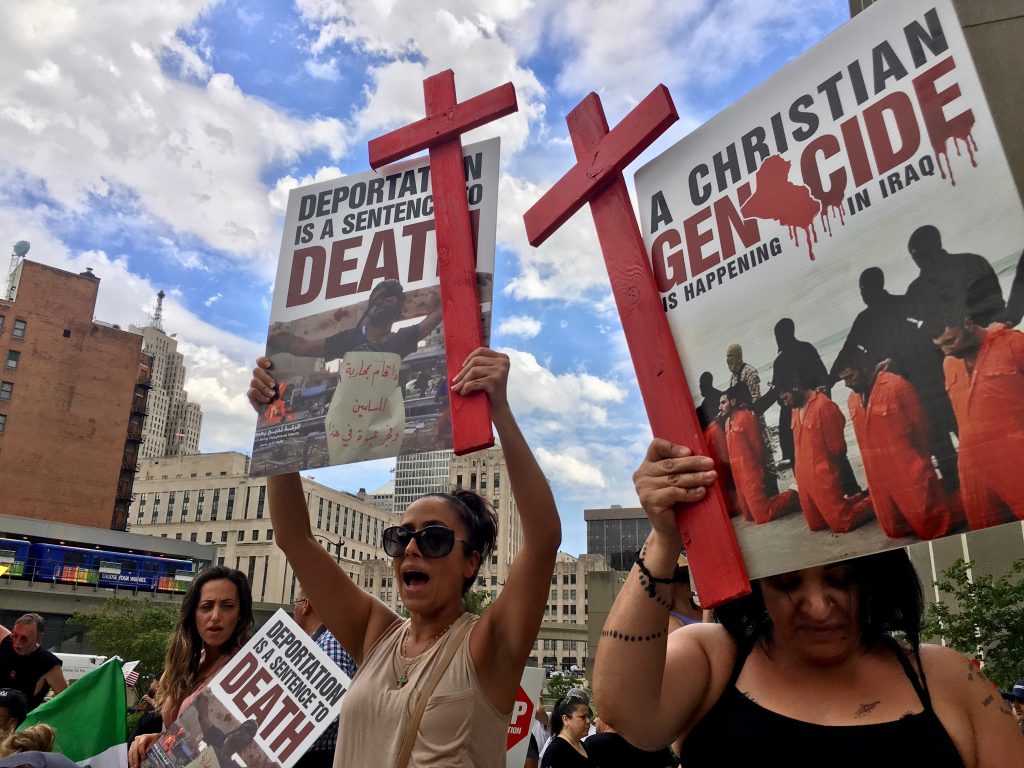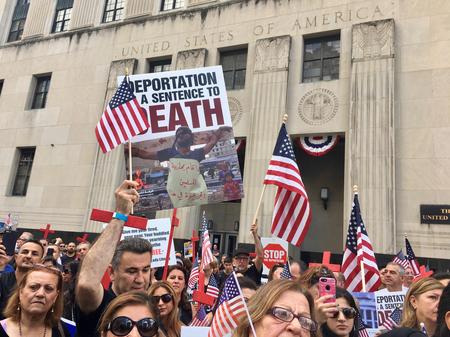Federal Judge in Detroit Blocks Deportation of Iraqis Nationwide
Justice Dept. will honor order temporarily banning Iraqi deportations. Judge weighing whether he has jurisdiction.


A federal judge in Detroit is banning the deportation of Iraqis nationwide for at least the next two weeks.
The judge is expanding an existing ban temporarily forbidding the removal of Iraqis from Michigan.
The deportees were taken into custody after Iraq agreed to accept them in exchange for being removed from President Trump’s revised travel ban.
The American Civil Liberties Union sued to block the deportations.
“These individuals had orders of removal decades ago. They haven’t had time to reopen their cases and talk about the changed circumstances.” — ACLU of Michigan Legal Director Michael Steinberg
The ACLU told U.S. District Judge Mark Goldsmith that the Iraqi nationals, many of them Chaldean Christians, could face torture or death if sent back to their native home, deportations the group said could begin this week.
The government argued the Iraqis involved had criminal convictions or charges pending and had already been ordered deported.
But the ACLU of Michigan’s Legal Director, Michael Steinberg, says many of the Iraqis have served their time and deserve a new day in court.
“These individuals had orders of removal decades ago,” Steinberg says. “They haven’t had time to reopen their cases and talk about the changed circumstances and the danger of persecution, torture or death.”
The ACLU then requested that Goldsmith extend the temporary ban to cover more than 1,400 Iraqis nationwide.
The government countered that the Iraqis should not be included as a single group.
Federal attorneys added that an immigration court, not a district court, should have jurisdiction over the case.
But the judge ruled that the potential harm facing the Iraqis outweighed the government’s interest in deporting them immediately and the Iraqis should have the chance to plead their case individually.
The judge is banning the deportations nationwide for at least two weeks while he considers the original question of whether or not he does, in fact, have jurisdiction in the case.
